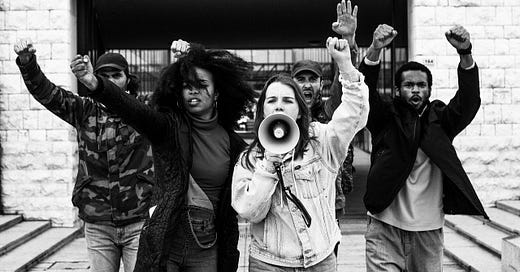Does health advocacy matter? I know it might seem like a loaded question to ask, but it’s one that I wonder if we should be asking ourselves more lately. At least, it’s a question I’ve been asking myself more as I write my statements for my PhD applications. As I’ve been thinking deeply about my career path, one experience I knew needed to be included in my PhD application was my experience working at Partners In Health (PIH).
While at PIH, I learned firsthand that community engagement and patient advocacy are vital for improving healthcare delivery. I witnessed that we can create meaningful healthcare changes through these. Doing so can improve health outcomes and create greater trust between healthcare providers and communities. However, healthcare advocacy isn’t always a concept people know much about until they need to, so we’re diving into this topic today.
What is Advocacy in Health?
Simply put, health advocacy promotes and protects the rights and well-being of patients and communities. We can engage in various activities through health advocacy, from influencing policy decisions and addressing social determinants of health to fostering partnerships between healthcare providers and communities. Even though I highly recommend self-advocacy, I recognize there is an amalgamation of reasons that doing so can be a barrier for some patients. That’s why patient advocacy is so important: it can provide needed support to those who might not otherwise be able to advocate for themselves.
Here are three ways effective advocacy ensures that everyone receives equitable, high-quality care regardless of background:
1. Building Trust through Community Engagement
Community engagement entails collaboration with groups of people to address issues affecting their well-being and understand the unique needs of different communities. This can happen through conducting surveys, holding focus groups, and maintaining open lines of communication. It also entails involving community members in decision-making to ensure that healthcare initiatives are relevant and culturally sensitive. Lastly, sharing information about healthcare plans, progress, and outcomes with the community allows the community to see that their input leads to tangible results. Thus, they build trust in the healthcare system, which grows.
2. Mobilizing for Policy Change
Advocacy efforts are crucial in shaping policies that promote health equity. This can be achieved by mobilizing community members to support health policies that address their needs. Advocacy efforts can also entail forming alliances with other organizations and stakeholders to amplify their impact. Lastly, providing evidence-based information to policymakers helps them understand the importance of health equity. Therefore, you can present data, share personal stories, and highlight successful initiatives.
3. Empowering Patient Advocates
Patients and their families are powerful advocates for change. Healthcare organizations can empower them by offering training programs that equip patients with the skills and knowledge to advocate for themselves and others. This also entails establishing peer support groups where patients can share experiences, offer support, and collaborate on advocacy efforts. Lastly, you can acknowledge the contributions of patient advocates through awards, public recognition, and support. This can motivate others to get involved.
Therefore, community engagement and advocacy are not just buzzwords but essential components of a healthcare system that truly serves all its members. You can significantly impact health equity and patient outcomes by embracing these principles.
Featured Initiative: The Loveland Foundation
Being a Black woman in America is mentally taxing. One in four Black women lives in poverty. Nationally, Black women earn 63.7 cents for every dollar earned by white men. Black-birthing people are three times more likely to die from pregnancy-related causes than white-birthing people in the US. We need to fund more therapy for Black women. Period.
I’m participating in The Loveland Foundation’s Love, Us campaign. The campaign aims to rally one million supporters to contribute just $5 each. In 2025, the Love Foundation will provide $5 million in therapy to Black women, girls, and non-binary individuals.
Join the movement of one million by making a $5 donation today.
Donation Link: https://give.thelovelandfoundation.org/give/484694/#!/donation/checkout
Together, let's champion health equity through community engagement and advocacy. Transform your approach and see the difference it makes in your community.
Warm regards,
Tomesha




